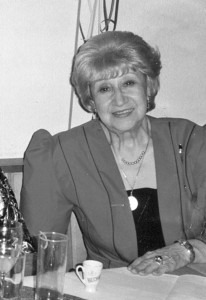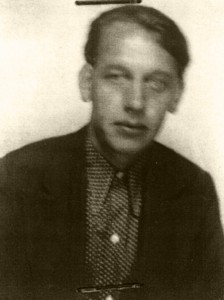
She was at her parents’ house in Meisengasse on 19 October 1941 when her roommates Selma and Regina Schermann were sent for deportation She decided that she could not sit around and wait to be herself arrested. She began to prepare her illegal life in Frankfurt with the help of her fiancé and good friends. A simulated suicide was intended to distract the Gestapo. She intentionally left clothing and laundry lying around, prepared a suicide note which her mother presented to the police submitting a missing person report. Her mother was repeatedly requested to come to the police station during the next few days each time when a female body was hauled from the river and would have to be identified. However, as a result of her preparations Erna had already gone into hiding in the apartment of Ludwig and Anna Geisel, a working couple who lived at Gellertstrasse 29. Her fiancé provided her with groceries and she stayed in the apartment for three years. To hide in an apartment in Frankfurt for three years is a long time, and by the end of November 1944 she was unable to bear this “hidden lifestyle” any longer. She took the first steps in the direction of liberated France, only to be arrested in Straßburg by American soldiers. She remained in jail for nine months, until the validity of her story could be confirmed and she was released. She married her rescuer Karl Barth in 1946. Erna told her story to a group of friends in a pub one day. All the people sitting at the table had “flaws”, i.e. they were “non-Aryan” according to Nazi laws. Erna Barth lived in an apartment belonging to the Arbeiterwohlfahrt (Workers’ welfare association) viewing the Main River until her death in 1999.
